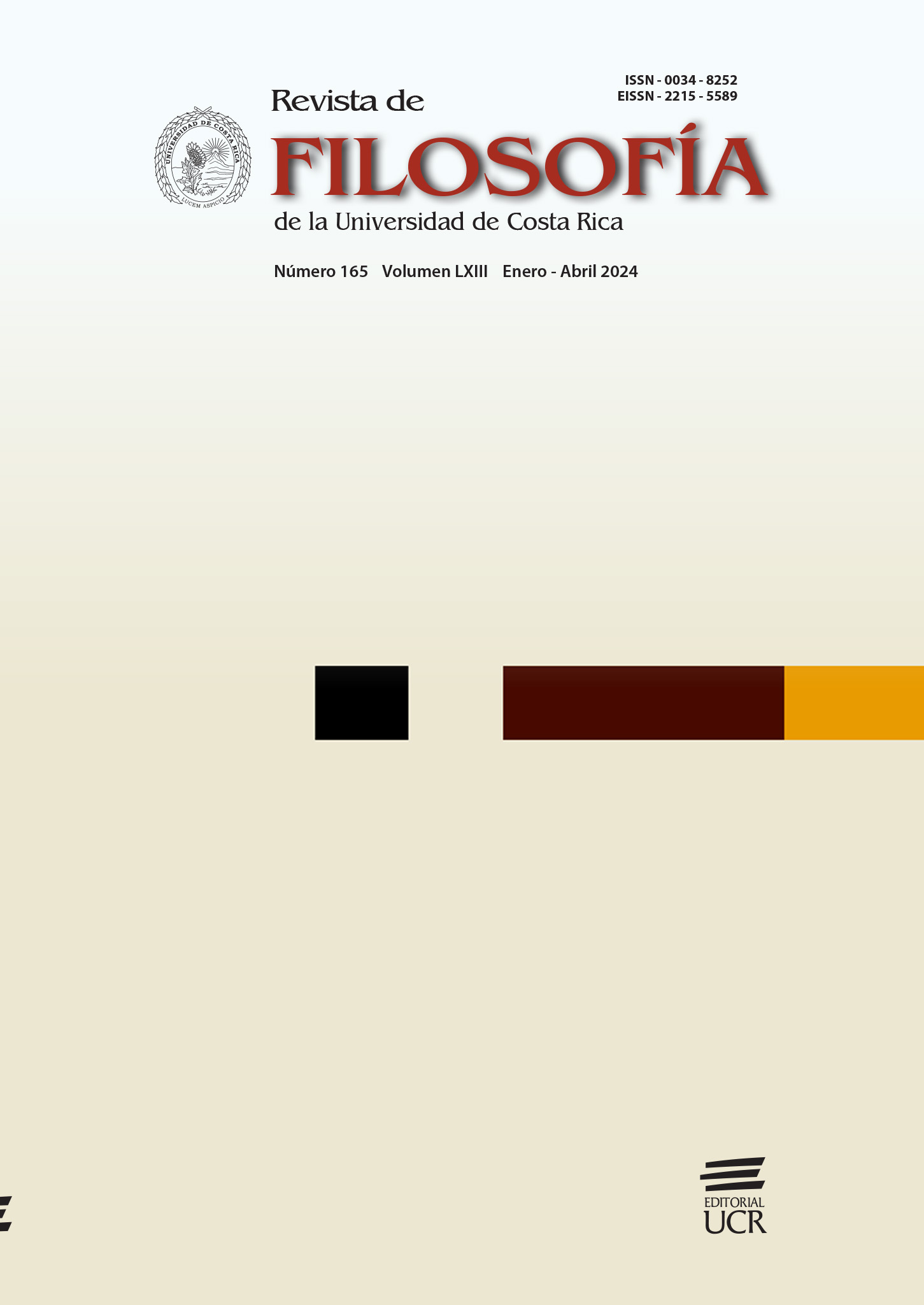Abstract
Is it possible and what sense does a philosophy of the ordinary have? Stanley Cavell's thought, one of the most original todays, allows us to approach this question, from the perspective of the analysis of ordinary language, but going further, to understand it as an approach to philosophizing, a skeptical anthropology, and a formative method. The question that remains open, relating it to Foucault and Hadot, is the importance that the question of the reality of their work and the concrete effectiveness of their discourse has, for philosophy and for those who practice it. From Cavell, it follows that today's philosophers should rediscover the “extraordinary” of what we consider ordinary and the “ordinary” of what we see as extraordinary.
References
Austin, J.L. (1990). Cómo hacer cosas con palabras. Palabras y acciones. Paidós.
Austin, J.L. (1994) “Plaidoyer pour les excuses”, en Écrits philosophiques. Seuil.
Cavell, S. (1962) “The Availability of Wittgenstein’s Later Philosophy”, The Philosophical Review, Vol. 71, No. 1, 67-93. Hay traducción española de 2012 en Praxis Filosófica Nueva serie, 34:203-230. https://praxisfilosofica.univalle.edu.co/index.php/praxis/article/view/3501
Cavell, S. (1988). Themes out of School. Effects and Causes. University of Chicago Press.
Cavell, S. (1993). “L’évitement de l’amour” en Le déni de savoir dans six pièces de Shakespeare. Seuil.
Cavell, S. (1996) “The investigations, Everyday Aesthetics of Itself”, en S. Mulhall (ed.) The Cavell Reader. Balckwell.
Cavell, S. (1999). La búsqueda de la felicidad. La comedia de enredo matrimonial en Hollywood. Paidós.
Cavell, S. (2002). Un tono de filosofía. Ejercicios autobiográficos. A. Machado Libros.
Cavell, S. (2004). Cities of Words. Pedagogical Letters on a Register of the Moral Life. Harvard University Press.
Cavell, S. (2005). Los sentidos de Walden. Ediciones Cátedra.
Cavell, S. (2009). Dire et vouloir dire. Cerf. (Trad. cast. de 2017: ¿Debemos querer decir lo que decimos? Un libro de ensayos. Prensas de la Universidad de Zaragoza).
Cavell, S. (2012). Les voix de la raison. Seuil. (Trad. Cast.: Reivindicaciones de la razón. Síntesis, 2003).
Cavell, S. (2014). Si j’avais su… Cerf.
Cavell, S. (2021). Esta Nueva y aún inaccesible América. Conferencias tras Emerson después de Wittgenstein. Prensas de la Universidad de Zaragoza.
Diamond, C. (2004). “Passer à côté de l’aventure. Réponse à Martha Nussbaum”, en L’Esprit réaliste. Wittgenstein, la philosophie et l’esprit (pp. 417-428). PUF.
Foucault, M. (1999). “La ética del cuidado de sí como práctica de la libertad”, en Ética, estética, hermenéutica. Obras esenciales III (pp. 393-416). Gallimard.
García, A. (2019). “Stanley Cavell: el mundo de cada día”. Letras libres (agosto): 15-17. https://letraslibres.com/wp-content/uploads/2019/07/dosier-garciaruiz-esp.pdf
Godard, J-L. (1980). Introducción a una verdadera historia del cine I. Alphaville.
Hadot, P. (2006). Ejercicios espirituales y filosofía antigua. Siruela.
Hadot, P. (2009). La filosofía como forma de vida. Alfa Decay.
Laugier, S. (2005). “Rethinking the Ordinary: Austin after Cavell”, en Goodman, R. B. (ed.), Contending with Stanley Cavell. Oxford University Press.
Norris, A. (2017). Becoming Who We Are. Oxford University Press.
Ortiz, E. (2021). “La inevitabilidad del amor. Stanley Cavell, el rey Lear y la acedía”. Espíritu LXX, 162: 419-439. https://dialnet.unirioja.es/descarga/articulo/8340905.pdf
Wittgenstein, L. (1988). Investigaciones filosóficas. UNAM-Crítica.
##plugins.facebook.comentarios##

This work is licensed under a Creative Commons Attribution-NonCommercial-NoDerivatives 3.0 Unported License.
Copyright (c) 2024 Revista de Filosofía de la Universidad de Costa Rica

